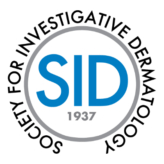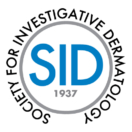Skin cancer is the most common group of cancers in humans. Whereas melanoma has over 20 FDA-approved therapies, highly lethal high-risk cutaneous squamous cell carcinoma and Merkel cell carcinoma have but a handful. The Tsai Lab seeks to address these unmet needs.
We combine cross-species analysis of UV-driven mouse models of skin cancer with deep interrogation of human tumor samples to develop novel chemoprevention and therapeutic strategies for high-risk cutaneous squamous cell carcinoma and Merkel cell carcinoma. The PI, Dr. Kenneth Y. Tsai, MD, PhD, is a dermatologist, dermatopathologist, and NIH-funded investigator with extensive experience in mouse models of cancer, molecular biology, and in the diagnosis and research of skin cancer. He Co-Directs Melanoma & Skin Cancer Center of Excellence (kenneth.tsai@moffitt.org).
Position Highlights:
• Work in a dynamic, highly collaborative, supportive, and lively scientific environment pursuing research with direct translational relevance in skin cancer treatment and prevention
• Have independent responsibility for initiating, pursuing and validating novel experimental approaches
• Gain intensive experience in state-of-the-art research methods (next generation sequencing, proteomics, circulating tumor cells / DNA, in-vivo imaging, metabolomics, mouse models, mathematical modeling) as well as development of presentation and writing skills with regular and frequent contact with the PI
The Ideal Candidate:
• Is proficient in analysis and design of experiments in molecular biology, genomics, next-generation sequencing, and in-vivo mouse models of cancer
• Is a strong communicator who will be very engaged and hands-on with fellow labmates, the PI, and outside collaborators, providers, and associates across the care continuum, as well as the broader leadership at Moffitt
• Possesses familiarity with contemporary molecular methodologies for deep biological interrogation of human tumor and skin samples including genomics, proteomics, basic informatics
Projects:
• Functionally validate specific microRNA and lncRNA functions in skin carcinogenesis in cells and in-vivo
• Test novel therapeutic and chemopreventative agents in UV-driven SCC mouse models
• Integrate proteomic, genomic, transcriptomic profiling of skin cancers to identify and functionally validate core signaling networks of skin cancer development and progression
• Identify and functionally characterize key epigenetic and metabolic regulators of skin cancer development and progression
• Use intravital imaging and single cell sequencing to characterize the earliest molecular changes in skin cancer development

